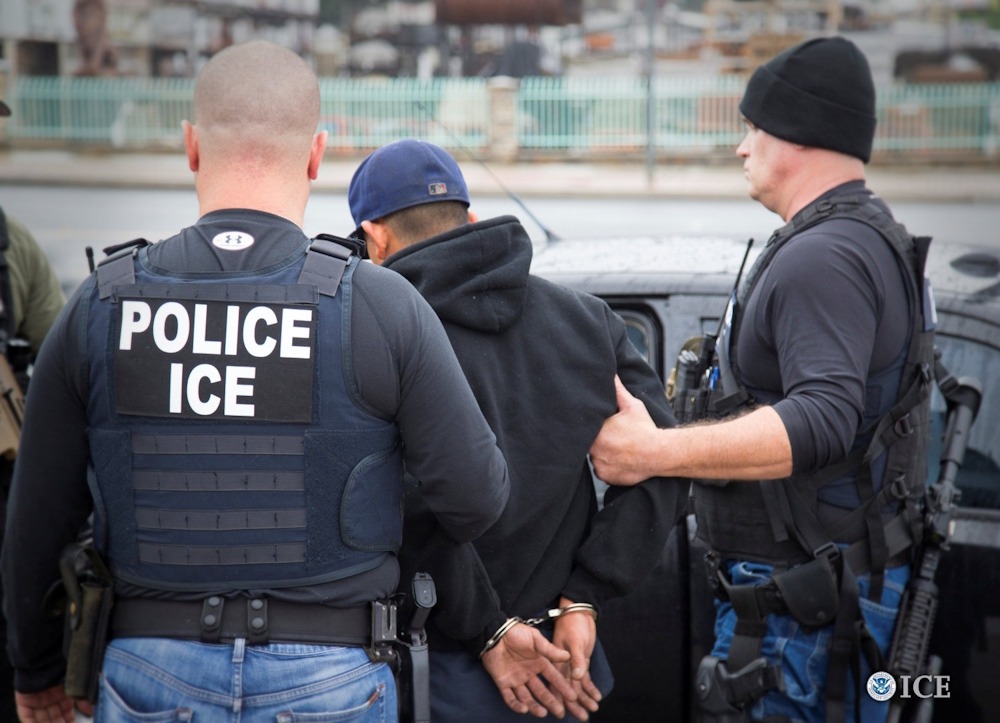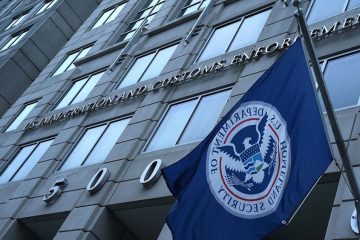New deportations under 18th-century law blocked by the Supreme Court.

On Saturday, the Supreme Court temporarily halted the deportation of any Venezuelans detained in northern Texas under a wartime legislation from the 18th century. In a succinct ruling, the court ordered the Trump administration to hold off on releasing Venezuelans detained at the Bluebonnet Detention Center until it issued another order. Samuel Alito and Clarence Thomas were the dissident justices.
The American Civil Liberties Union filed an emergency appeal with the high court, arguing that immigration officials seemed to be resuming removals under the 1798 Alien Enemies Act. The US 5th Circuit Court of Appeals has not yet taken action, and two federal judges declined to intervene. The American Civil Liberties Union, which argued that immigration officials seemed to be attempting to resume removals despite the US Supreme Court’s limitations on its use of the act, unsuccessfully asked two federal judges on Friday to order the Trump administration to refrain from deporting any Venezuelans detained in northern Texas under a wartime law from the 18th century.
Even while one judge stated that the deportations raised valid issues, he was unable to issue an order. Later that day, the ACLU filed emergency petitions to stop the deportations with the US Supreme Court and the Fifth Circuit Court of Appeals. The group has already filed a lawsuit to prevent the deportation of two Venezuelans detained in the Bluebonnet Detention Center under the Alien Enemies Act of 1798, and it is requesting that a judge issue an order prohibiting the removal of any immigrants from the area under the same legislation.
The ACLU said in an emergency petition early Friday that other Venezuelan males detained there were being accused by immigration officials of being Tren de Aragua gang members, making them vulnerable to the deployment of the act by President Donald Trump. Only three times in US history has the legislation been used, the most recent being during World War II to place Japanese-American civilians in internment camps. Regardless of their immigration status, the Trump administration claimed it granted them the authority to quickly deport foreigners they suspected of being gang members.
To stop deportations under the statute, the ACLU and Democracy Forward filed a lawsuit right away. In a majority decision, the US Supreme Court permitted deportations to resume, but only provided those who were set to be taken were given an opportunity to present their case in court and a fair amount of time to challenge their impending removals. Orders prohibiting the deportation of prisoners under the AEA until the government provide a procedure for them to file claims in court were swiftly issued by federal judges in Colorado, New York, and southern Texas. However, no such order has been issued in the region of Texas that includes Bluebonnet, which is situated in the state’s extreme northern region, 24 miles north of Abilene.
This week, Trump appointee District Judge James Wesley Hendrix refused to stop the administration from deporting the two individuals named in the ACLU case because Immigration and Customs Enforcement submitted sworn declarations stating that they would not be deported right away. Additionally, he objected to granting a more comprehensive injunction that would have prohibited the evacuation of all Venezuelans in the region under the act, claiming that removals had not yet begun.
Sworn affidavits from three different immigration attorneys, however, are included in the ACLU’s Friday submission. They claim that their clients in Bluebonnet were handed documents proving they were Tren de Aragua members and that they could be deported by Saturday. In one instance, immigration attorney Karene Brown claimed that despite the fact that her client only spoke Spanish, she was instructed to sign documents in English. The client was identified by initials. According to Brown, ICE told F.G.M. that the President was sending these documents and that he would be deported even if he didn’t sign them.
In a hearing before District Judge James E. Boasberg in Washington, DC, on Friday night, ACLU lawyer Lee Gelernt stated that the administration first transferred Venezuelans to its immigration facility in south Texas for deportation. However, they have been directed to the Bluebonnet facility, where there is no such order, because a judge prohibited deportations in that region. According to him, witnesses saw the men being put onto busses and driven to the airport on Friday night.
The ACLU turned to Boasberg, who first stopped deportations in March, when Hendrix refused to grant their plea for an emergency order. Boasberg claimed he was helpless Friday when the Supreme Court decided that the orders prohibiting deportation could only be issued by judges in the areas where immigrants were detained. Boasberg said to Gelernt, “I understand everything you’re saying.” I just don’t think I have the power to do anything about it. Boasberg this week found there’s probable cause that the Trump administration committed criminal contempt by disobeying his initial deportation ban. He was concerned that the paper that ICE was giving those held did not make clear they had a right to challenge their removal in court, which he believed the Supreme Court mandated.
Drew Ensign, an attorney for the Justice Department, disagreed, saying that people slated for deportation would have a minimum of 24 hours to challenge their removal in court. He said no flights were scheduled for Friday night and he was unaware of any Saturday but the Department of Homeland Security said it reserved the right to remove people then. ICE said it would not comment on the litigation. Also Friday, a Massachusetts judge made permanent his temporary ban on the administration deporting immigrants who have exhausted their appeals to countries other than their home countries unless they are informed of their destination and given a chance to object if they’d face torture or death there.
Some countries, like Venezuela, do not accept deportations from the United States, which has led the Trump administration to strike agreements with other countries like Panama to house them. Venezuelans subject to Trump’s Alien Enemies Act have been sent to El Salvador and housed in its notorious main prison.








